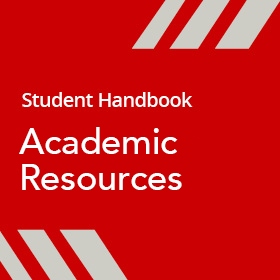Docentra: Your Ally in Accessing Premium Educational Resources Online
Docentra: Your Ally in Accessing Premium Educational Resources Online
Blog Article
Where to Locate Premium Academic Resources for Your Study
Determining premium academic sources is essential for rigorous study, yet browsing the vast landscape of readily available materials can be discouraging. In addition, on-line academic data sources like JSTOR and PubMed aggregate academic articles, while open access journals supply more comprehensive accessibility to research study findings. Recognizing just how to take advantage of these sources properly might dramatically impact your research study outcomes.
University Libraries

Beyond physical collections, university libraries frequently supply specific study aid, including appointments with curators that have subject knowledge (Docentra). This guidance can considerably improve the effectiveness and performance of the research procedure, enabling customers to browse intricate information landscapes with better simplicity
Additionally, many collections offer accessibility to rare and historical materials, which can be indispensable for advanced research projects. Such special sources usually consist of main records, manuscripts, and historic collections that are not conveniently offered somewhere else.
In addition, university collections regularly hold workshops and seminars targeted at boosting information proficiency skills. These initiatives empower students and faculty to critically review resources, an essential ability in today's information-rich atmosphere. Overall, college collections not only act as databases of knowledge yet also function as vibrant centers that foster scholastic development and development.
Online Academic Databases
In the realm of scholastic research study, on the internet scholastic databases play a critical function in supplying students and scholars with instant accessibility to a wide range of academic articles, journals, and other important sources. These electronic databases offer as central systems where customers can efficiently look for peer-reviewed literature throughout numerous disciplines.
Prominent databases such as JSTOR, PubMed, and Scopus host comprehensive collections that cover a wide range of subjects, from the humanities to the scientific researches. Docentra. By employing advanced search functionalities, researchers can refine their queries, filter results by publication date, and gain access to citation devices, consequently improving the research study process's efficiency and accuracy
Moreover, numerous data sources use functions like notifies for new magazines and the capacity to conserve and organize short articles, further streamlining the study experience. Registrations to these data sources are typically offered through academic establishments, approving trainees and faculty members unlimited access to premium content.
Open Gain Access To Journals
Increasingly, scientists are turning to open up gain access to journals as a corresponding resource to conventional scholastic databases. These journals provide a beneficial platform for sharing research study findings without the economic barriers commonly related to subscription-based magazines. Open accessibility designs permit complimentary on the internet access to scholarly write-ups, making certain that research is accessible to a larger target market, including professionals, policymakers, and the public.
The high quality of open accessibility journals has dramatically improved, with lots of adhering to extensive peer-review procedures and being indexed in trusted databases. This shift has actually fostered higher transparency and collaboration in the academia, as scientists can share their job a lot more conveniently and receive comments from varied perspectives.
Furthermore, the spreading of open accessibility journals straightens with the global motion in the direction of open scientific research, advertising the idea that openly funded research study must be openly available to all. Researchers seeking top notch scholastic sources should consider respectable open accessibility journals, such as those listed in the Directory of Open Accessibility Journals (DOAJ) or Your Domain Name those released by identified scholastic cultures. By incorporating open accessibility journals into their research techniques, scholars can enhance the visibility and impact of their work.
ResearchGate and Academia.edu
ResearchGate and Academia.edu have become critical systems for scholastic networking and knowledge sharing, with millions of scientists leveraging these websites to share their job and attach with peers. Both systems permit customers to produce profiles that showcase their publications, research interests, and scholastic success, promoting higher exposure within the scholarly community.
ResearchGate, established in 2008, more helpful hints concentrates on advertising cooperation amongst researchers via attributes such as study partnership tools, project sharing, and question-and-answer forums. Users can post their documents, participate in conversations, and comply with the work of others, enhancing the collaborative capacity of their research. The system likewise offers metrics on paper presence and downloads, enabling researchers to gauge the effect of their work.
Academia.edu, released in 2008 as well, operates similarly yet highlights the sharing of academic documents. Individuals can follow details study subjects and get updates on new magazines within their areas of passion. Furthermore, Academia.edu provides analytics on visitor involvement, aiding researchers comprehend their audience much better.
Both platforms work as valuable sources for accessing high-quality scholastic material and fostering links that can lead to impactful cooperations.
Google Scholar and Beyond
Academic networking platforms like ResearchGate and Academia.edu play a substantial duty in disseminating research study, yet Google Scholar provides a various dimension by working as an extensive internet search engine for scholarly literature. It indexes a vast variety of resources, including peer-reviewed write-ups, theses, books, meeting proceedings, and patents, i was reading this making it a vital tool for researchers throughout disciplines.
Google Scholar supplies numerous features that improve study effectiveness. The citation monitoring function enables customers to see just how typically a paper has actually been cited, providing insights into its influence within the scholastic community. Furthermore, the "associated write-ups" function assists scientists discover similar research studies, assisting in an extra comprehensive exploration of a topic.

Verdict
In conclusion, accessing premium academic resources is necessary for strenuous research study. University libraries give considerable collections and experienced advice, while online scholastic data sources such as JSTOR and PubMed systematize academic articles. Making use of these sources collectively can considerably improve the quality and depth of academic research study.
Report this page